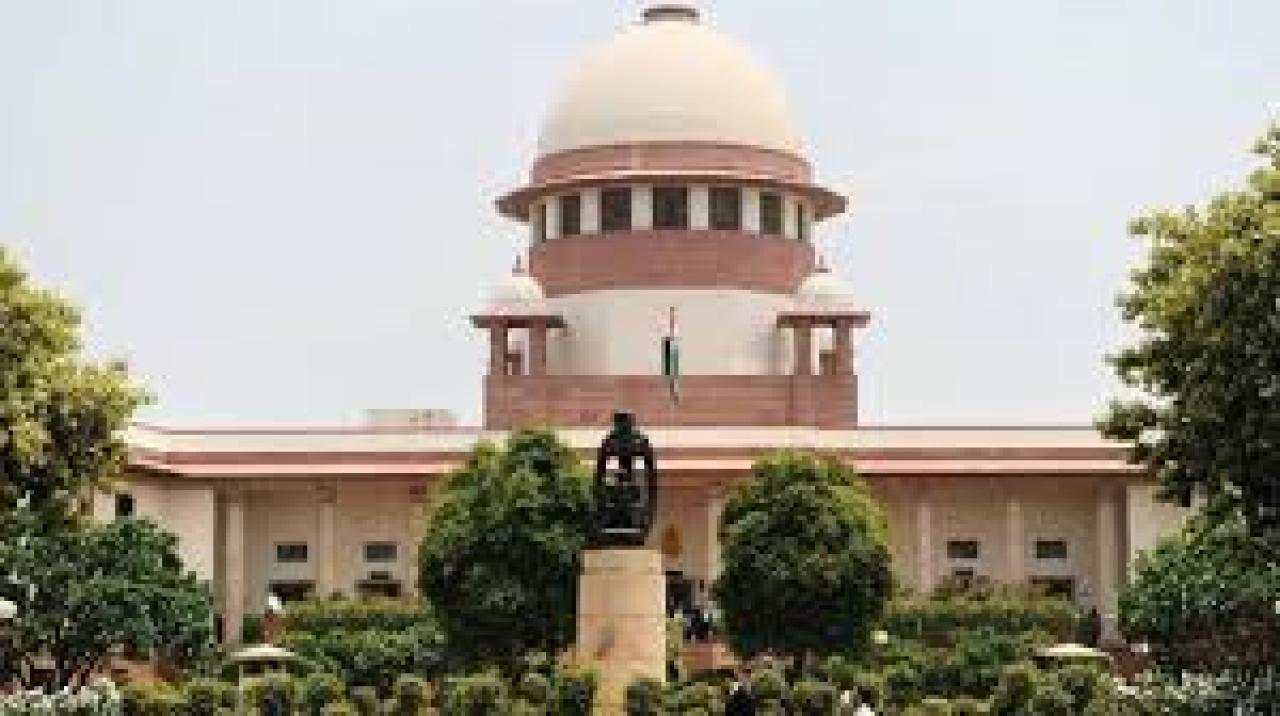The Supreme Court has adjourned the hearing on petitions challenging the Places of Worship Act, 1991, citing the need for a three-judge bench. The case will now be listed in March.

File Pic
The Supreme Court on Monday deferred the hearing of multiple petitions challenging the constitutional validity of the Places of Worship (Special Provisions) Act, 1991. The Act, which was enacted to preserve the religious character of places of worship as they existed on August 15, 1947, has been the subject of extensive legal debate.
A bench comprising Chief Justice of India Sanjiv Khanna and Justice PV Sanjay Kumar announced that the matter required a three-judge bench. As the current bench had only two judges, the hearing was postponed to a later date, likely in March.
“We will not take up the Places of Worship Act matter today. It is a three-judge bench matter. Too many petitions have been filed. List it sometime in March. There should be a limit to the number of intervention applications being filed,” Chief Justice Sanjiv Khanna remarked, as per ANI.
The case has seen intervention applications from multiple political and religious organisations opposing the petitions against the Act. Among those filing applications are the Indian National Congress, the Communist Party of India (Marxist–Leninist), the All India Majlis-e-Ittehad-ul-Muslimeen (AIMIM) led by Asaduddin Owaisi, Jamiat Ulama-I-Hind, the All India Muslim Personal Law Board, the Committee of Management Anjuman Intezamia Masjid (which oversees the Gyanvapi mosque in Varanasi), and the Shahi Idgah mosque committee of Mathura.
According to ANI, these groups argue that allowing the petitions to proceed would open the floodgates to litigation over numerous mosques across the country. They have urged the apex court to dismiss the pleas challenging the validity of the Act.
The Supreme Court is currently handling several petitions challenging Sections 2, 3, and 4 of the Places of Worship Act, 1991. The petitioners argue that these provisions violate the fundamental principles of secularism and the rule of law, which form the core of the Constitution’s basic structure. They also claim that the Act infringes on fundamental rights, including the right to equality and religious freedom.
The 1991 Act strictly prohibits any alteration of the religious character of a place of worship and imposes severe penalties for violations. It also blocks the initiation of any new legal proceedings concerning places of worship that existed before 1947, except for the Ram Janmabhoomi-Babri Masjid case, which was excluded from the law’s purview.
On December 12, the Supreme Court directed all courts across the country to refrain from issuing any interim or final orders, including surveys, in pending cases regarding religious structures. It further ordered that no fresh suits related to such disputes should be registered while the apex court is deliberating on the constitutional challenge to the Places of Worship Act.
Several individuals, including Maharaja Kumari Krishna Priya, a member of the Kashi Royal Family; BJP leader Subramanian Swamy; former MP Chintamani Malviya; retired army officer Anil Kabotra; advocates Chandra Shekhar and Ashwini Upadhyay; and religious leaders such as Swami Jeetendranand Saraswati and Devkinandan Thakur Ji, have filed petitions opposing the Act.
These petitioners contend that the law unjustly deprives Hindus, Jains, Buddhists, and Sikhs of their right to reclaim their places of worship and pilgrimage sites that were allegedly destroyed by invaders. The pleas further argue that while the Act exempts the Ram Janmabhoomi dispute, it does not extend the same exception to the birthplace of Lord Krishna, despite both deities being revered incarnations of Lord Vishnu.
The petitioners maintain that the Act effectively strips them of their right to seek judicial recourse, thereby infringing upon their fundamental right to access the courts.
As per ANI reports, the Supreme Court is expected to take up the case for hearing in March, where a three-judge bench will decide the next course of action regarding these legal challenges.
(With inputs from ANI)
 Subscribe today by clicking the link and stay updated with the latest news!" Click here!
Subscribe today by clicking the link and stay updated with the latest news!" Click here!










